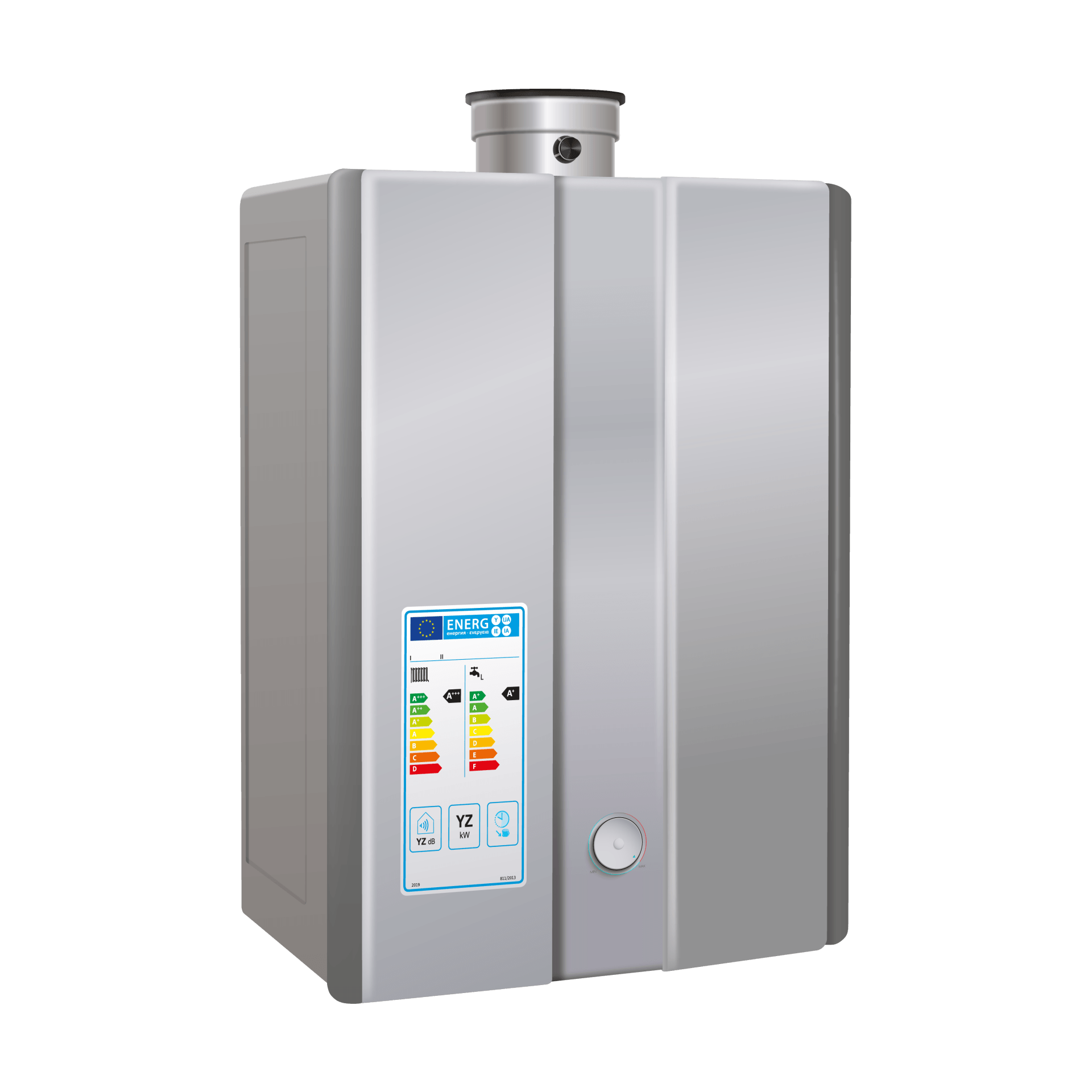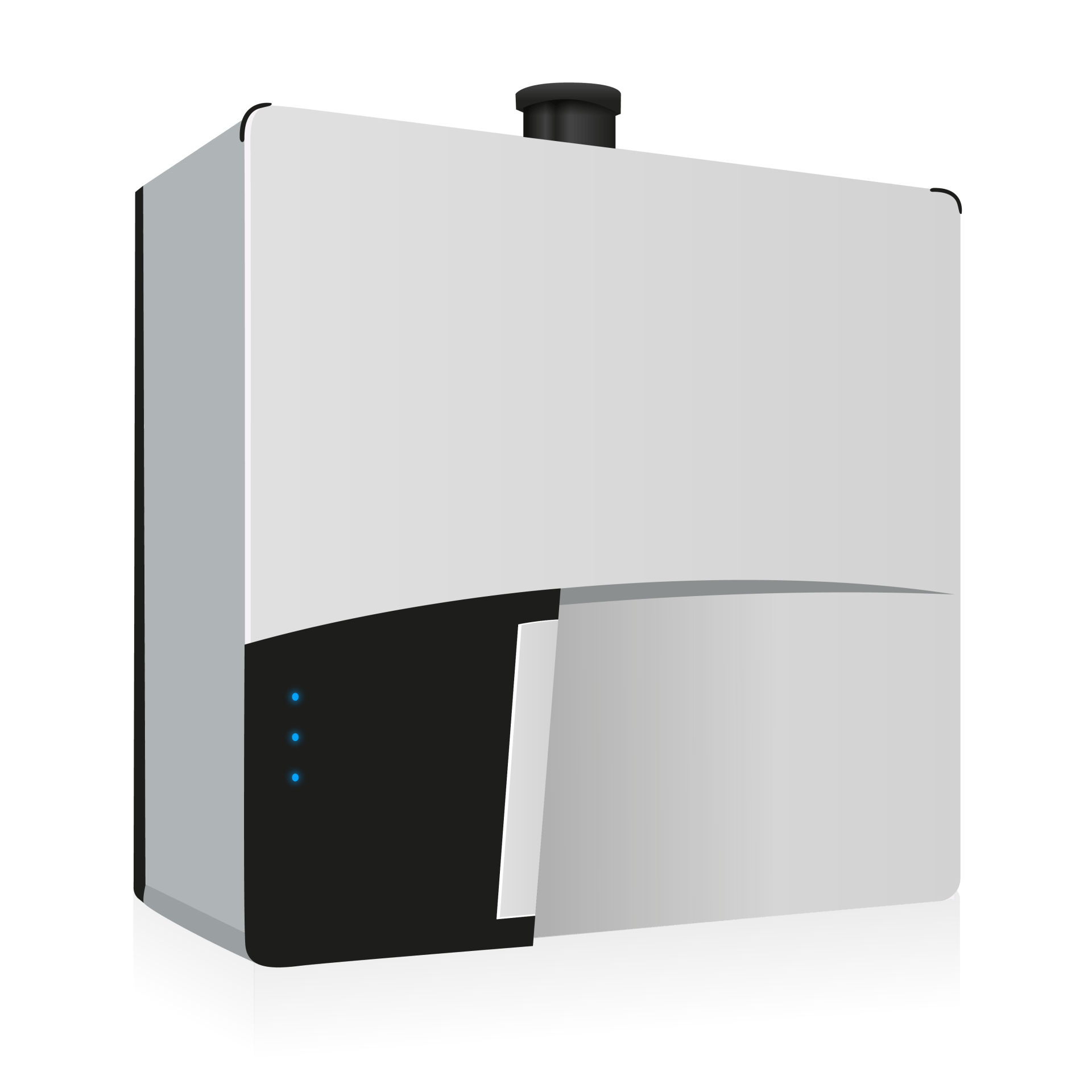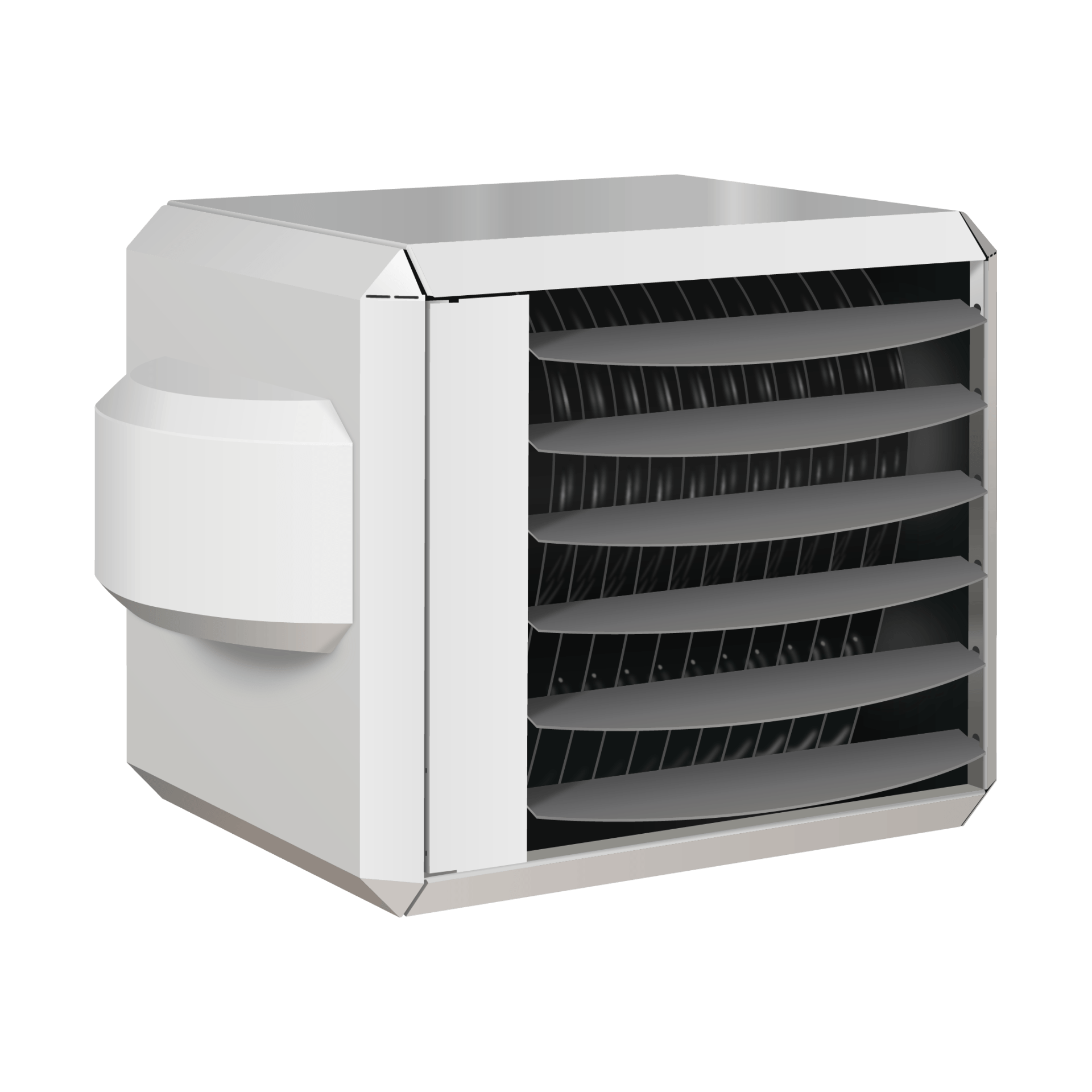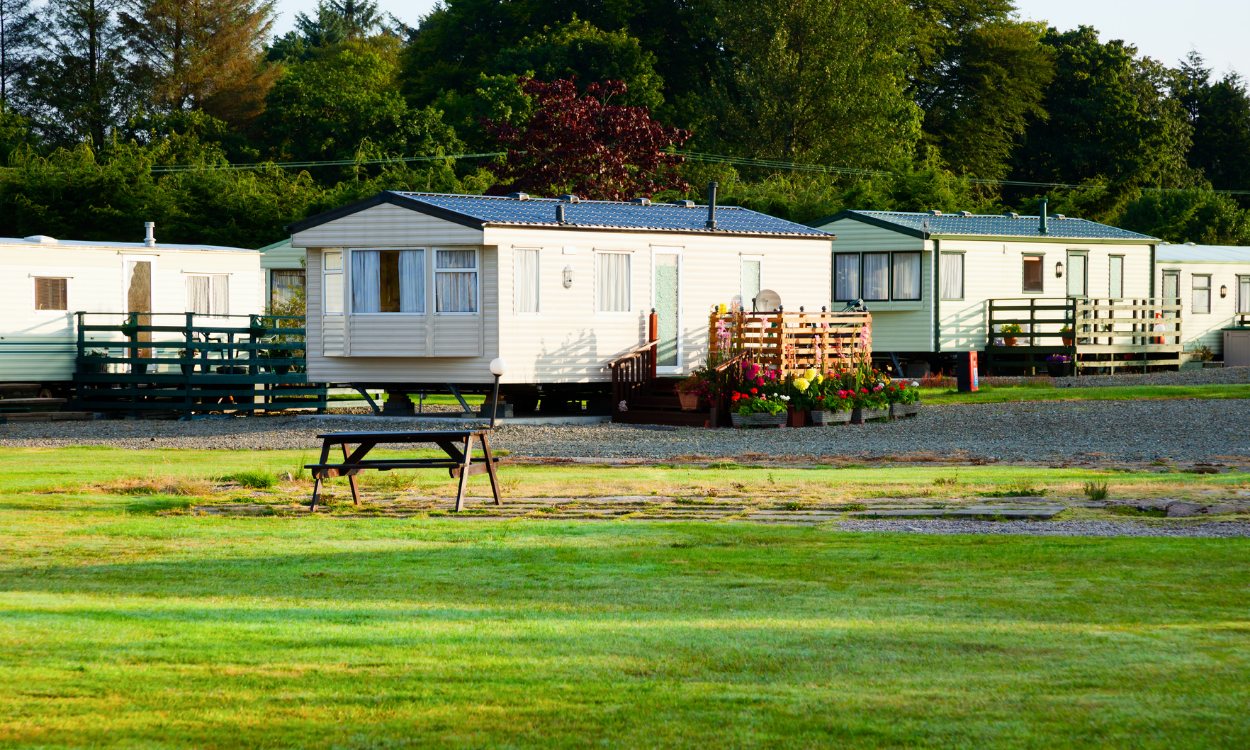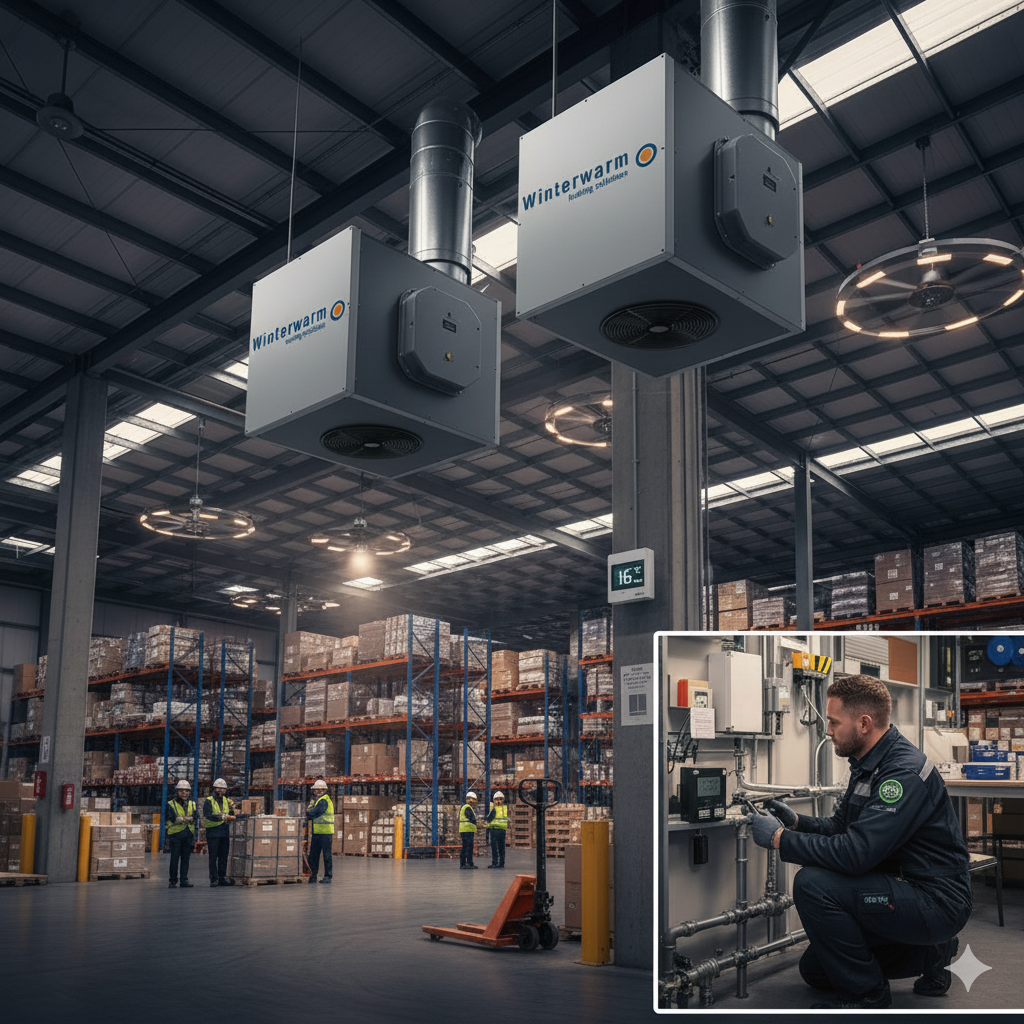5 Compelling Reasons to Service or Upgrade Your Warehouse Heater This Summer
As a warehouse, factory, or logistics manager in the UK, your focus during the summer months is likely on maximising throughput, managing holiday schedules, and preparing for the peak season ahead. The large space heaters hanging silently from the ceiling are probably the last thing on your mind. However, this period of relative quiet for your heating system presents a golden opportunity—a strategic window to prevent future chaos, slash operational costs, and significantly improve your working environment.
Ignoring your heating system until the first cold snap of autumn is a reactive strategy fraught with risk. It’s a gamble that can lead to emergency call-outs, expensive repairs, crippling downtime, and staff complaining of the cold—all during your busiest period. A proactive approach, where heating maintenance and potential upgrades are scheduled for the summer, is not just sensible; it’s a powerful business decision that pays dividends all year round.
This guide will explore the five critical reasons why summer is the definitive time to turn your attention to your industrial heating system. We will delve into the tangible benefits of acting now, from guaranteeing compliance with workplace regulations to making long-term savings on your energy bills. We'll examine the cutting-edge technology available in modern warm air heaters, the importance of professional servicing, and how to build a solid business case for investment. Prepare to transform your heating system from a potential liability into a reliable, efficient asset.
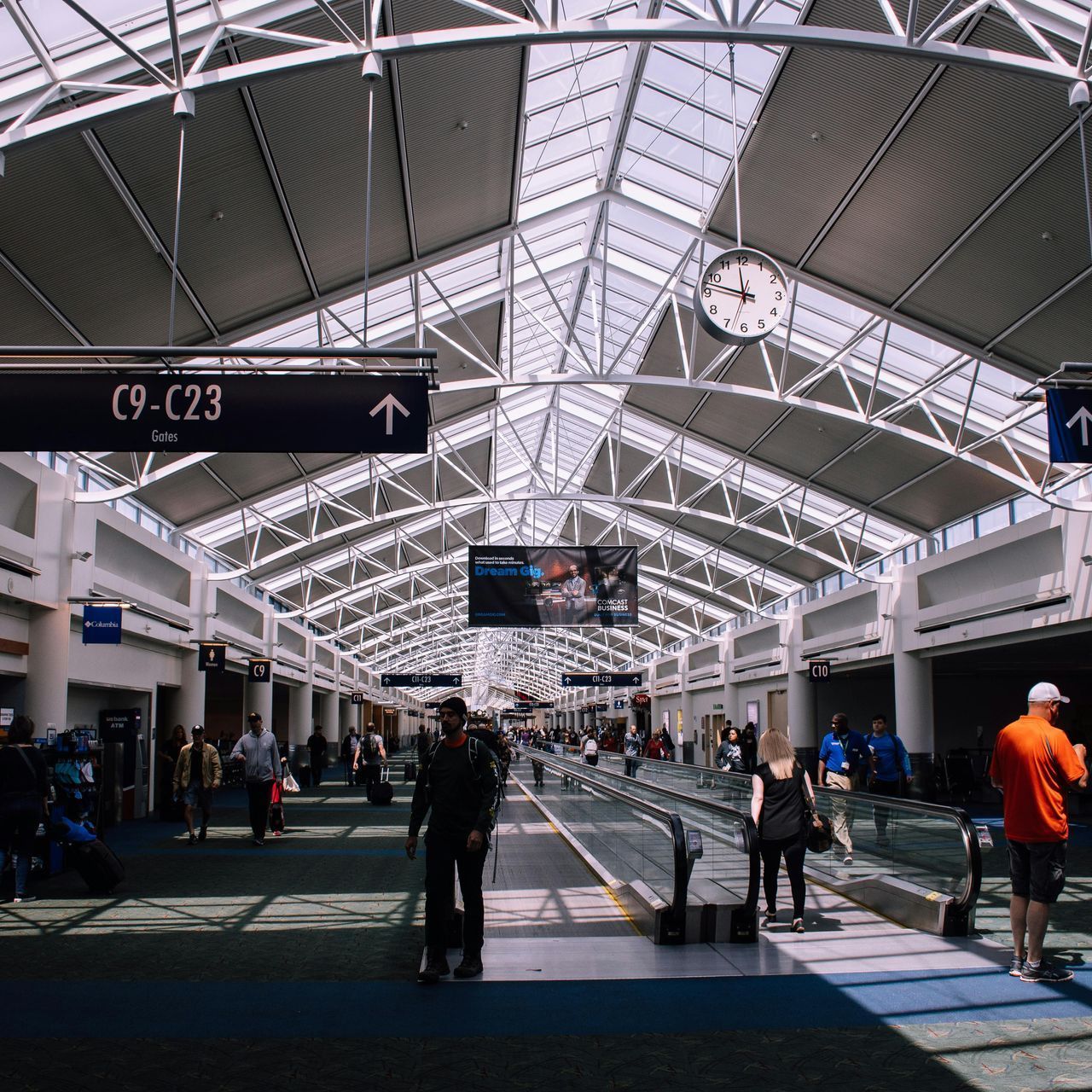
The High Cost of Inaction: Why Waiting for Winter is a Mistake
For many businesses, the principle of "if it ain't broke, don't fix it" governs their approach to essential equipment, including heating. An industrial heater that worked perfectly fine when it was switched off in April is expected to do the same when fired up in October. Unfortunately, this overlooks the complex nature of these powerful systems and the harsh realities of a British winter.
The Inevitable Emergency Call-Out
Imagine the scenario: It’s late November, the first severe frost has hit, and your facility is humming with pre-Christmas activity. An employee reports that one of the main heating units isn't working. Soon, the temperature in a key packing zone begins to plummet. Productivity slows as staff struggle with cold hands. You make an urgent call to a heating engineer, only to be told they are inundated with similar emergencies and can't get to you for 48 hours. When they finally arrive, the diagnosis is a critical component failure that requires a part to be ordered, leading to several more days of downtime.
This situation is not just an inconvenience; it's a direct blow to your bottom line. You face:
- Premium Rates: Emergency, out-of-hours call-outs are significantly more expensive than scheduled maintenance appointments.
- Lost Productivity: Cold working conditions are not just uncomfortable; they are proven to reduce manual dexterity and cognitive function, leading to slower work rates and an increased risk of errors.
- Operational Disruption: You may need to relocate staff, cordon off areas, or halt certain processes altogether, causing major disruption to your workflow.
Creeping Energy Inefficiency and Skyrocketing Bills
An un-serviced heater is an inefficient heater. Over a year of operation, components like burners, heat exchangers, and fans accumulate dust and debris. Burner pressures can drift, and filters can become clogged. This forces the system to work harder and burn more fuel to produce the same amount of heat.
This gradual decline in performance often goes unnoticed, but its effect on your energy bills is very real. A system that has lost even 10-15% of its efficiency can add hundreds or even thousands of pounds to your annual gas or electricity costs. By servicing the unit, an engineer can clean critical components, recalibrate the burner for optimal combustion, and ensure the system is running as close to its original specifications as possible. Upgrading to a modern condensing heater can yield even more dramatic savings, often in the region of 25-35% compared to older, non-condensing models.
Workplace Welfare and Legal Compliance
In the United Kingdom, employers have a legal duty of care to provide a "reasonable" temperature in the workplace. The Health and Safety Executive (HSE) provides clear guidance. While there is no legal minimum temperature for general warehouse work, the approved code of practice suggests it should normally be at least 13°C for work involving rigorous physical effort and 16°C for less active work.
Failing to maintain these temperatures can lead to more than just staff complaints. It can result in formal action from the HSE, damage to employee morale, and an increase in sickness-related absences. A reliable heating system isn't a luxury; it's a fundamental part of providing a safe and productive work environment that complies with UK law. A sudden failure in winter puts you at immediate risk of non-compliance.
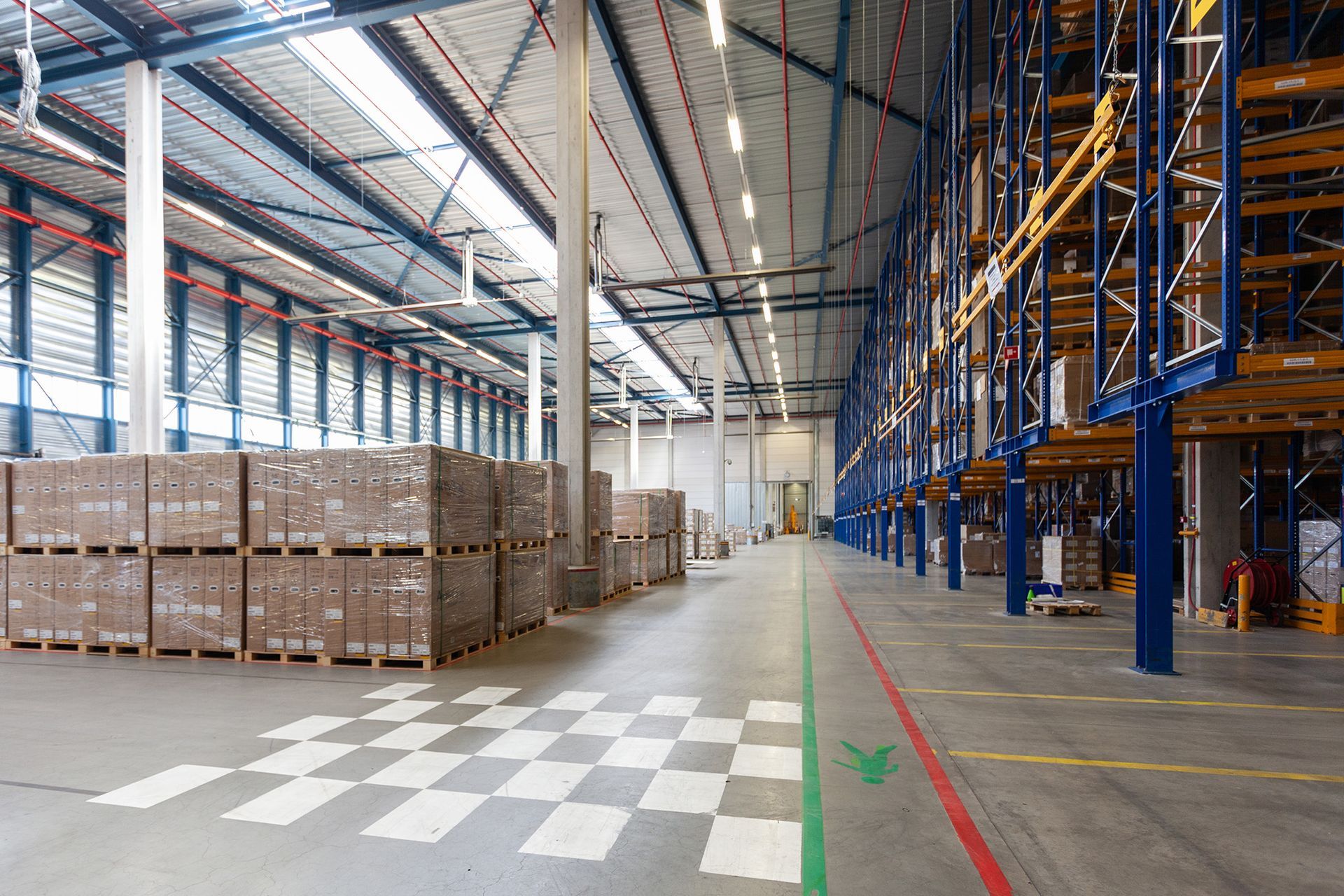
Reason 1: Maximise Uptime with Strategic Summer Servicing
The most compelling argument for summer maintenance is the guarantee of uptime when it matters most. Scheduling a full service between June and August allows you to address any potential issues on your own terms.
The Luxury of a Planned Schedule
During the summer, heating engineers have much better availability. You can book a service for a specific date and time that causes the least disruption to your operations, perhaps during a planned shutdown or a quieter shift. This contrasts sharply with the frantic scramble for an available engineer in winter.
A planned service is also more thorough. The engineer isn't under pressure to get a system running quickly to placate a cold workforce. They have the time to perform a comprehensive diagnostic, meticulously clean every component, and identify any parts showing signs of wear and tear. This preventative approach allows you to replace a component that might be three-quarters of the way through its life cycle before it fails, turning a potential emergency into a routine, planned repair.
What a Professional Service Should Involve
A comprehensive service of an industrial warm air heater, whether it's a suspended gas unit or a floor-standing cabinet heater, should be a detailed process. When you book a service with a reputable company like Factory Heaters, you should expect the engineer to:
- Visual Inspection: Check the overall condition of the unit, flue, and any associated pipework or wiring for signs of damage or corrosion.
- Cleaning: Thoroughly clean the burners, heat exchanger, and fan assembly to remove accumulated dust and debris, ensuring maximum airflow and heat transfer.
- Gas Safety Checks: For gas heaters, the engineer (who must be Gas Safe registered) will check for any gas leaks, measure burner pressure and gas rates, and ensure the combustion is safe and efficient.
- Flue and Ventilation Analysis: Inspect the flue for blockages and ensure it is terminating correctly. They will also perform a flue gas analysis to check the levels of carbon monoxide (CO) and carbon dioxide (CO2), ensuring the appliance is burning safely.
- Electrical and Control Checks: Test all safety devices, thermostats, and electrical connections to ensure they are functioning correctly.
- Full-Function Test: Run the heater through a full operational cycle to monitor its performance and ensure it is delivering heat effectively.
- Service Report: Provide a detailed report outlining all the checks performed, any remedial work carried out, and recommendations for any parts that may need future attention.
This level of detailed, preventative care is simply not possible during a rushed emergency call-out.

Reason 2: Unlock Significant Energy Savings with an Upgrade
While servicing an old unit is crucial, summer is also the perfect time to assess whether that unit is still the right solution for your business. Energy prices have become one of the most significant operational costs for industrial businesses. Investing in a modern, energy-efficient heating system can deliver a remarkable return on investment (ROI) through drastically reduced energy consumption.
The Power of Condensing Technology
The single biggest leap in heating technology over the last two decades has been the development of condensing heat exchangers. In a traditional, older heater, hot flue gases (a byproduct of combustion) are simply vented outside, wasting a significant amount of latent heat.
A condensing warm air heater is different. It's designed with a secondary heat exchanger. As the hot flue gases pass through it, they are cooled to below their dew point (around 55°C). This process causes water vapour in the gas to condense back into liquid water, releasing the powerful latent heat energy that is otherwise lost. This captured heat is then used to pre-heat the air entering the main heat exchanger, meaning the burner has to do less work.
The result? Gross thermal efficiencies of over 100%. While this sounds like it defies physics, it's a recognised industry measurement that accounts for the recovery of this latent heat. For your business, it means a direct, pound-for-pound saving on your gas bill. Upgrading from a 15-year-old appliance with 75% efficiency to a new condensing heater with over 100% efficiency can reduce your heating fuel consumption by 30% or more.
Top-Tier Products: Winterwarm Heaters
At Factory Heaters, we champion products that deliver proven performance and efficiency. For warehouse and factory environments, the Winterwarm range of condensing gas-fired unit heaters is an exceptional choice. The Winterwarm XR+ range, for example, is a market leader known for:
- Ultra-High Efficiency: They boast an efficiency of up to 106% (net), providing maximum energy savings.
- Modulating Burner: Unlike older heaters that are simply 'on' or 'off', these units have a modulating burner and fan. This means they can adjust their heat output precisely to match the demand of the building, preventing wasteful overheating and further reducing fuel use.
- Quiet Operation: They are designed for low noise levels, creating a more comfortable working environment.
- Durability: Built with high-quality stainless steel heat exchangers, they are designed for a long and reliable service life.
An upgrade to a Winterwarm unit is a direct investment in lowering your operational expenditure.
Don't Forget Destratification
Heated air naturally rises. In a tall warehouse, this creates a phenomenon called thermal stratification, where a useless pool of hot air gathers at the ceiling while the floor level remains cold. Your heater works overtime, burning fuel to heat the roof space, not your people.
The solution is a system of destratification fans. These are large, low-velocity fans installed at ceiling level that gently push the warm air back down to the 'working zone'. According to sources like the Carbon Trust, an effective destratification system can reduce heating fuel consumption by up to 30% on its own. Combining a new condensing heater with destratification fans is the ultimate strategy for maximising heating efficiency in a large space.
Reason 3: Ensure a Safe and Legally Compliant Workplace
As previously mentioned, maintaining a safe and reasonably comfortable thermal environment is a legal requirement. A proactive summer review of your heating system is the best way to ensure you meet these obligations head-on.
Mitigating Carbon Monoxide Risks
Any fuel-burning appliance, if poorly maintained or installed, can potentially produce dangerous levels of Carbon Monoxide (CO). CO is a colourless, odourless gas that can be fatal. The risk increases substantially with older appliances that have not been professionally serviced. A key part of any Gas Safe engineer's service is to perform a flue gas analysis to ensure the heater is burning cleanly and safely, giving you documented proof of compliance and peace of mind.
Meeting Your Duty of Care
A reliable heating system is a cornerstone of employee welfare. Providing a consistently warm environment shows your staff that you care about their comfort and wellbeing. This can have a positive impact on morale, staff retention, and overall productivity. By ensuring your system is in perfect working order before winter, you are fulfilling your duty of care and cementing your reputation as a responsible employer. The summer provides the ideal, low-pressure timeframe to conduct a full site survey to identify cold spots and design a heating solution that provides even, comfortable heat distribution for your entire workforce.
Reason 4: Future-Proof Your Operations
Technology and regulations are constantly evolving. Using the summer to upgrade your heating system allows you to align your facility with the future of energy in the UK.
Get Ready for the Hydrogen Blend
The UK is on a path to decarbonise its gas network. One of the first steps in this transition is the plan to blend up to 20% hydrogen into the natural gas supply. While this won't happen overnight, it is coming. Older heating appliances may not be certified to run on this new blend of gas, potentially rendering them obsolete or requiring expensive conversion kits.
New, modern appliances are designed with this future in mind. At Factory Heaters, we supply heaters that are certified to run on the future hydrogen blend. Installing one of these units now is a smart, forward-thinking move. It ensures your investment is protected, your business remains compliant, and you won't face another costly upgrade when the gas composition changes. It's the definition of future-proofing.
Smart Controls for a Smarter Warehouse
Modern heating is about more than just the heater; it's about the control system. Upgrading in the summer allows you time to install and commission a modern, smart control system. These systems can include:
- 7-Day Timers: Set precise heating schedules for every day of the week, ensuring the heating is only on when it's needed.
- Zone Control: Divide your warehouse into different zones and heat them independently, so you're not wasting energy heating areas that are empty or require less heat.
- Wi-Fi Connectivity: Control and monitor your heating system remotely from a smartphone or computer.
- Optimum Start/Stop: The controller learns the thermal properties of your building and automatically calculates the latest possible time to switch the heating on to reach the desired temperature by the start of the shift, saving significant amounts of fuel.
Implementing these controls is a project best undertaken without the pressure of an impending winter.
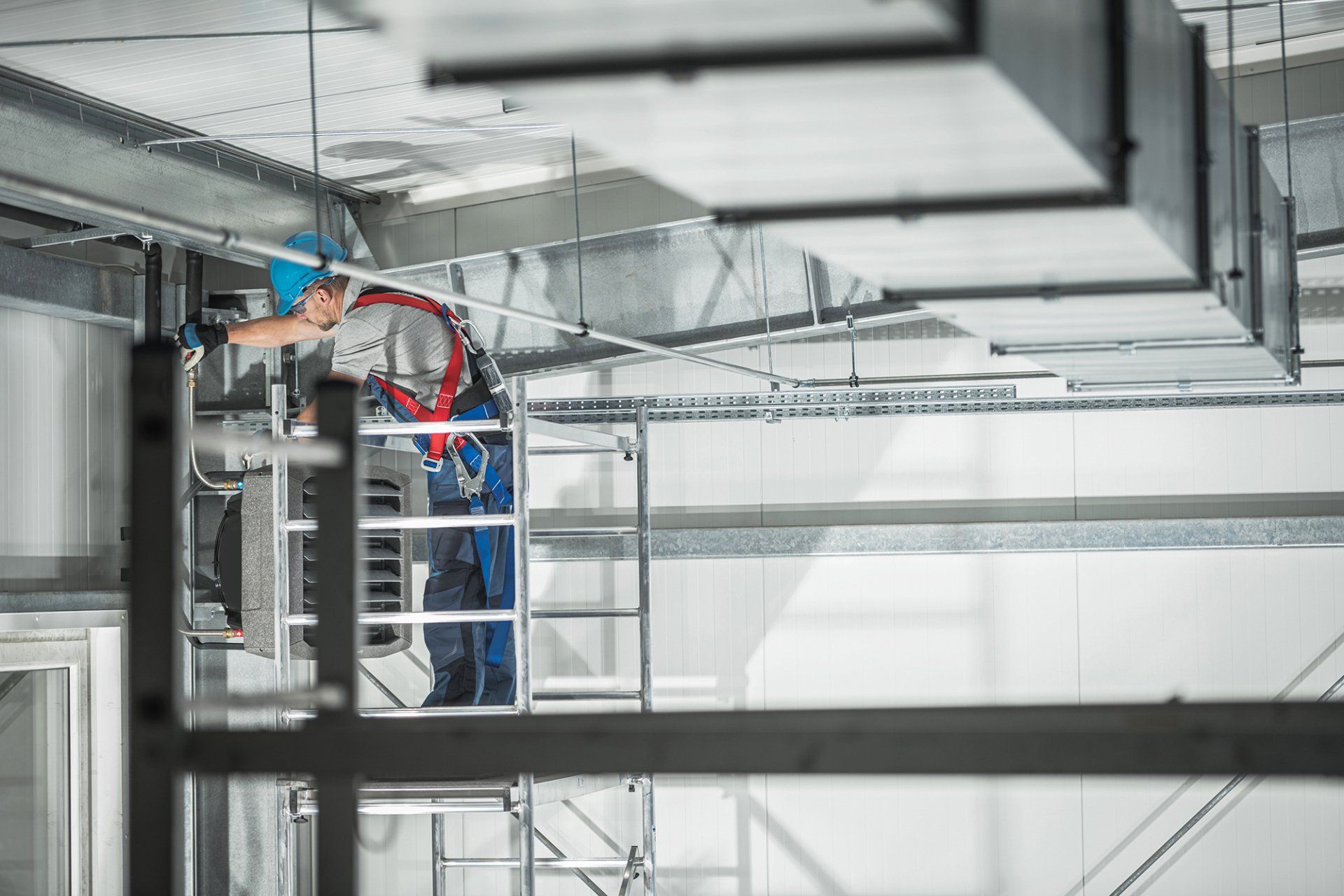
Reason 5: A Clear Business Case and Smoother Budgeting
Finally, acting in the summer makes sound financial sense. It allows for considered purchasing, clearer budgeting, and a much smoother project management process.
You have the time to get multiple quotes, conduct a thorough site survey, and properly evaluate the best long-term solution rather than making a distress purchase. The cost of a new heating system can be properly budgeted for, and you may even be able to take advantage of asset financing options.
Calculating Your Return on Investment (ROI)
Building the business case for a new heater is straightforward.
- Establish Your Baseline: Look at your gas bills for the last 12-24 months to determine your annual heating cost.
- Estimate Your Savings: Based on an upgrade to a condensing heater (e.g., 30% saving) and adding destratification fans (e.g., a further 20% saving), you can calculate a realistic estimate of your annual cost reduction.
- Calculate Payback Period: Divide the total cost of the new system (supply and installation) by your estimated annual savings.
Example:
- Annual Gas Bill for Heating: £15,000
- New System Cost (Condensing Heaters + Destratification): £20,000
- Estimated Annual Saving (45%): £6,750
- Payback Period: £20,000 / £6,750 = ~2.9 years
A payback period of under three years for a critical piece of infrastructure with a lifespan of 15+ years is an extremely compelling investment for any financial director.
The Smoothest Installation Process
Undertaking a major installation is far simpler in the summer. Engineers can work more comfortably and efficiently. If doors need to be open for access or ventilation, it has a minimal impact on the building's internal environment. The entire process, from the initial site survey to the final commissioning and handover, can be completed with minimal disruption to your core business activities.
Conclusion: Make Summer Your Season for Heating Strategy
The evidence is overwhelming. Viewing your industrial heating system as a "fit and forget" appliance is a strategy that belongs in the past. The summer months offer a unique strategic advantage—a time to move from a reactive to a proactive mindset.
By servicing your existing heaters, you guarantee reliability and safety. By considering an upgrade to modern, condensing technology like the Winterwarm range, you unlock massive potential for energy savings and demonstrate a commitment to sustainability. By ensuring your workplace is compliant and comfortable, you invest in your most valuable asset: your people. And by planning these works for the summer, you ensure a smooth, cost-effective process on your own terms.
Don't wait for the first frost to expose a weakness in your operations. Use this time wisely. Take a walk through your facility, look up at your heaters, and ask yourself if they are truly ready for the demands ahead.
The team at Factory Heaters is ready to help you answer that question.
Contact us today for a no-obligation site survey and a detailed discussion about how we can help you prepare for a warm, efficient, and trouble-free winter.
